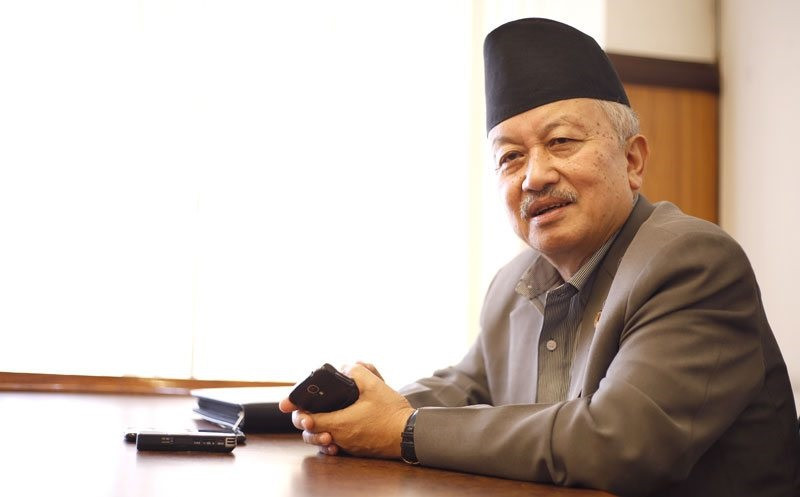CPN-UML Vice-chairman and Deputy Parliamentary Party Leader Subash Chandra Nembang has called the party's opposition to the citizenship bill normal in democracy.
In a video conversation with Setopati, Nembang has also pointed that the process of withdrawing the bill at the House is wrong.
He has protested removal of the provision in the report submitted by the State Affairs and Good Governance Committee of the House of Representatives (HoR) that required foreigners marrying Nepali citizens to wait for seven years to get naturalized citizenship.
When reminded that the then UML government led by KP Sharma Oli had also tried to remove the seven-year provision, he doesn't provide a clear answer and instead claims that the current opposition is normal in democracy.
"One can oppose in democracy. Democracy was brought to oppose, support and do all things through democratic process. I, therefore, don't want to comment on all these things. I want to say only this much—the question that is raised now, everyone agreed on that question while in the committee. That was moved forward after everyone passed it. There is disagreement on that again now. The issue is that," he elaborates.
He has pointed how parties including UML have worked very hard on the Citizenship Bill. The bill was registered in the HoR on August 7, 2018. It was discussed in the State Affairs and Good Governance Committee of the HoR, and the report subsequently submitted to the HoR on June 23, 2020 included the provision that requires foreigners marrying Nepali citizens to wait for seven years to get naturalized citizenship.
But the current government withdrew the bill and brought a new one. "We have opposed in accordance to the parliamentary process. We believe that presenting a new bill leaving the parliamentary process will not make the parliament strong. We have said that the previous bill could have been sent to the committee and corrected."
He has also claimed that most of the provisions including the non-resident citizenship for those living abroad (outside SAARC countries) were kept by UML, and added that some of the issues that should not have been kept have also been included in the recently passed bill.

